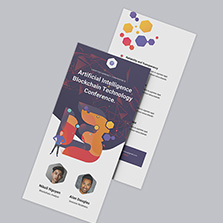
Search Engine AI Will Not Kill SEO — Here’s Why
In an era where artificial intelligence (AI) is rapidly advancing, there are growing concerns about the future of search engine optimization (SEO). With tech giants like Google and Bing constantly refining their AI algorithms, many wonder if traditional SEO practices are becoming obsolete. However, the evolution of AI-driven search engines does not mark the end of SEO; instead, it presents an opportunity for optimization strategies to adapt and thrive in this ever-changing digital landscape. This article will explore why Google and Bing’s AI advancements will not eradicate SEO but will highlight its relevance and importance for businesses and online marketers.
Ready to learn more? Read on.
The Indispensable Role of SEO: Why Google and Bing’s AI Will Not Kill It
Google and Bing have fully embraced the world of generative AI in the hopes of providing a better search experience within their search results. Now they are working on delivering generative text above the main search results in an attempt to answer a user’s questions (rather than first offering a list of links to websites).
Many SEO experts and publishers are concerned about this use of AI, believing that potential search traffic will be limited as users will no longer need to actually click on a link to access the information they are searching for.
However, search engine AI doesn’t have to be nearly as bad as many assume. There will be some changes down the line, and many websites will be forced to develop new content strategies to fill the gap. In our opinion, SEO is still necessary as a marketing tool to engage with search engines in various ways.
If SEO Wasn’t Important, It Would Have Died Already
Over the years, many things have changed in the digital landscape that should have had a negative impact on SEO, and yet it has continued to prevail. Here are a few examples of moments in the past when SEO should have died but hasn’t:
Search Ads:
Despite the rise of search ads and their prominence in search engine results pages, search engine optimization (SEO) has survived and continues to thrive. With search ads occupying valuable real estate and offering instant visibility, one might have expected SEO to become obsolete. However, SEO’s resilience lies in its ability to provide organic, long-term results that go beyond the limitations of paid advertising. While search ads may deliver immediate visibility, they come with a cost-per-click and rely on ongoing investment.
On the other hand, SEO focuses on optimizing website content, structure, and user experience, creating a solid foundation that attracts organic traffic and sustains visibility over time. Moreover, users often perceive organic search results as more trustworthy and credible, further solidifying SEO’s importance in driving quality traffic and generating sustained organic growth.
Featured Snippets/Knowledge Graph
When reviewing Google’s new Search Generative Experience (SGE), we found that the generative AI results section is quite similar to Featured Snippets. Both take up a similar amount of space on the screen, provide equivalent levels of information, and often leave users wanting more details. The main difference is that SGE lacks citations for its content, but it includes a carousel of related links. Based on these similarities, it’s likely that SGE will have a similar impact as Featured Snippets, which means it might not drastically change the SEO landscape.
While some websites experienced a decrease in traffic when a Featured Snippet was displayed, others that were cited in the snippets saw a significant increase in traffic. This led businesses to actively optimize their content for Featured Snippets as part of their SEO strategy. We think that SGE will likely lead to a similar behavior, with companies aiming to be included in SGE results and optimizing their content accordingly.
Zero Click
You’ve heard of Zero Click searches. This term refers to search queries where users obtain the necessary information without clicking on search results or advertisements. This trend can be attributed to the rise of features like Featured Snippets and Knowledge Graph integration, which provide direct information within the search results, eliminating the need to visit a website or click on an ad.
Though many of us were worried about it, the surge in zero-click searches has not led to a substantial decline in organic traffic. One reason for this is that alongside the increase in zero clicks, there has been a rise in overall search query volume. In other words, more people are using search engines, even without clicking on specific results. Due to featured snippets and the search engine’s ability to quickly provide information, more and more people are using search engines to answer even the simplest of questions.
The increase in search volume for these new types of queries has not significantly affected organic traffic because both search volume and zero-click searches have increased simultaneously.
Most Searches Aren’t Worthy Of Search Generative Experience (SGE)
Many of the generated results in Bing’s initial rollout of their generative AI turned out to be fabricated entirely, leading to incorrect information for users and embarrassing moments for the media promoting the technology.
Conversely, Google is more cautious in avoiding this mistake by limiting the types of queries its SGE feature applies to. For instance, questions about financial or health information (classified as Your Money Your Life) and those involving sensitive ethnic or racial topics are excluded. Additionally, many queries for which Google still needs to gather sufficient data will not receive SGE results.
Considering that SGE will not be applied to numerous query types, there will still be ample opportunities for SEO experts and content marketers to develop strategies for creating organic traffic. This might involve engaging customers at different marketing funnel stages or creating content related to relevant keywords. In any case, it remains possible to generate organic traffic by targeting queries that do not trigger SGE or AI-generated results.
What Do You Need To Know?
First, Google and Bing will likely calibrate their SGE and contribute to experimenting with how it works. Once they launch, they’ll modify and adjust based on user feedback.
Many features seemingly diverting traffic away from publishers might not exist or be less prevalent than anticipated. One reason for this is the potential impact of SGE on Google’s advertising revenue. Although ads may appear above or below the results, professionals experienced in UX or CRO would emphasize that such changes can significantly affect ad click-through rates (CTR). Therefore, if Google’s primary concern is ad revenue, it is likely that SGE will likely not disrupt your current SEO efforts too much.
There are plenty of opportunities for SEO experts and marketing professionals to optimize their content, similar to optimizing for featured snippets. Your focus should be updating specific pieces of information rather than updating web pages and URLs in general. The great thing about search engine optimization is that it can adapt and evolve as we continue to enhance our client’s visibility. SEO isn’t going anywhere, and if anything is only going to be more prevalent as technology evolves.
Conclusion
Are you concerned about the growing advancements of AI? Are you worried about whether or not your business is getting enough visibility on search engines? I can help. Schedule a consultation with me today, and let’s discuss a strategy to drive traffic and increase your ROI.















































